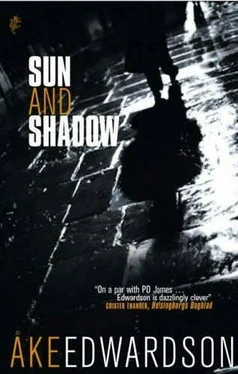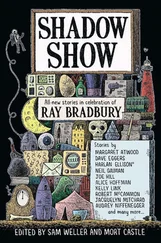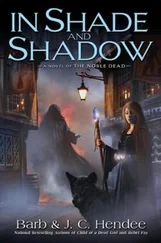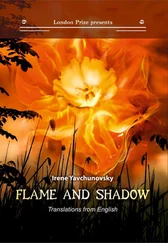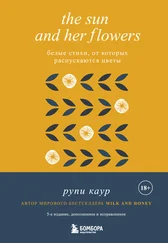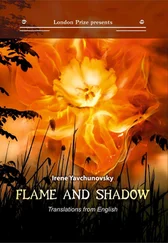“Only in passing,” said Bartram “But we’ve never seen him without Maria.” He turned awkwardly in the passenger seat and looked up at Patrik. “Where is she now?”
“Maria?” Winter asked.
“Hanne’s daughter. The vicar,” Morelius said.
“Hanne Ostergaard?”
“Yes.”
“Can we go now?” Patrik asked.
Winter nodded without asking any more questions. The boy needed to see a doctor.
Patrik got into the back and the car drove off. Winter had his home number. He wondered briefly what must be going on there. Then he thought of Hanne Ostergaard for the first time in ages, and he felt the CD hitting against his rib and he thought about the music.
Patrik closed his eyes. His cheek and eye were pounding, more now than before. The cops didn’t say a word. It had grown darker, and was nearly black outside. The pair in the front seats became lighter and darker as they passed the streetlights. Lighter. Darker. They seemed to be sitting diagonally opposite one another. What he could see most of was the backs of their heads. They weren’t wearing hats. It got lighter again as they passed Slottsskogen. He dosed his eyes, then looked again. He could still see the profiles of the men in front of him, and still nobody spoke. He closed his eyes, looked. He was back on the stairs that morning. He was here. On the stairs. And here. His cheek started hurting. He was sweating, he felt as if he were running up the stairs, carrying the newspapers. Stopped, looked. Somebody went out through the front door, into the darkness out of the light. The profile.
Morelius stopped outside the ER and turned around.
“Here we are, Patrik.”
The boy said nothing. Didn’t move. Bartram turned around to look at him.
“Patrik?”
“He’s dozed off,” Morelius said.
Winter listened to the CD on his portable Panasonic, which was on the floor in front of the window. First track, second track. He changed to the cassette, then back again. They were the same so far. He listened to the whole thing and compared them. A challenge.
The text was a fold-out rather than a booklet. The cover itself was brown and black, a clumsy drawing of a brown sea and black cliffs and a horizon that melted into the night and a black sky, with bright, tiny stars. It said “Sacrament” at the bottom, in a Gothic typeface that Winter recognized from the magazines and catalogs he’d leafed through.
There was also a logo in the top left-hand corner, maybe a silver bat, or a prehistoric bird.
The leaflet was made up of four pages, three of the pictures depicted men who could be members of the band. Or they could be any metal fan who happened to be passing, he thought. The three people could be Nordberg and Sverker and any of the other staff at Desdemona: black sweaters and trousers, bright yellow patterns, studs like the bright stars in the black sky, black waist-length hair, extremely pale faces. But there were some extra features here: bare tree trunks, weapons such as swords and maces. Every character had a different sky: orange, green or dark blue.
He couldn’t see any sign of a daughter, nor a prophet. Nor a cross, unless the mace one of the men was holding could be interpreted as a cross together with one of the trees.
The last page comprised white text on a black background. A lot of text, most of it very small and densely packed. As if it had intentionally been made unreadable, Winter thought.
But he was going to read it. He had his reading glasses with him. He’d had to face up to that reality this last year.
The disc was recorded in the Machine Room, Edmonton. The winter of 1995. All the songs had been written by the Masters of Horrid Nuclear Hate-filled Blackness.
He started reading the piece in the top left, the first song. The narrator was walking through a forest that could have been the one he’d seen on page two of the leaflet.
He played the first track again, and tried to follow. He listened as he read. Blood trickles to the floor. This woman has broken a sacred bond. The black angel. This woman has deserted me and I must take revenge.
Winter switched off the music and continued reading. He found himself sinking into a sea of blood. Black galaxies of hatred. Stars that exploded in the underworld and created demons who wandered through demilitarized zones on the hunt for victims. Perhaps it contained some kind of humor, but it was difficult to see that after what had happened in that room.
Dusk was approaching again. The buildings on the other side of the river were yellow and red in the beams of winter sun. The sun goes away just when it’s at its best, thought Winter, and left his office, walked along empty corridors and staircases to forensics.
Beier was at his desk, waiting for him. He was wearing a tie and a white shirt. He was generally smartly dressed. Winter sat down.
“The sperm is Valker‘s,” Beier said.
Winter nodded. They had found traces of sperm on the sofa the couple had been sitting on.
“But not exclusively,” said Beier. “There was sperm from two or three other men as well. Two, I think.” He tapped a folder on his desk. “It’s all in here. Several stains from several occasions. From at least five months ago, and at various times later.” He picked up the folder and handed it to Winter. “But the latest is Valker’s own.”
“Could it have been from the night of the murder?”
“Yes.”
“But nothing from anybody else? At that time?”
“No.”
“There could have been several people in the apartment on that night,” Winter said.
“Obviously,” Beier said. “We have about ten fingerprints from various people that are not in any of our registers. But there again, fingerprints are not unusual in an apartment or a house. People come and go.”
“But not all of them leave sperm behind.”
“No.” Beier stood up when the coffee arrived. He always gave Winter coffee whenever he visited his office. Beier took the tray from the secretary, put it on his desk, and handed a cup to Winter.
Winter wondered briefly how Beier could persuade the girl to come in with a tray of coffee. Perhaps they had an agreement. Next time it would be Beier’s turn to go around with the tray. Beier added milk and sugar and looked up. “All the secretions we’ve found were on that sofa. Or adjacent to it.”
“What does that mean?”
“What does it mean? That things happened on the sofa and adjacent to it.”
“Nothing from the woman?”
“Oh yes.”
“Hers? And two others?”
Beier nodded.
“Three men and three women,” Winter said.
“Three couples.”
“We have three couples in the investigation,” Winter said.
“I know.”
“So all we need is more sperm and secretions that we can compare.”
“Good luck,” said Beier.
“Am I letting my imagination run away with me?”
“I don’t know.”
“They know something,” said Winter.
“What do you mean?”
“I spoke to the Martells. Djanali and Halders spoke to the others. The Elfvegrens. There was something behind what they said, something implied but not spelled out. With both couples.”
“It’s called the subtext,” Beier said. “But it doesn’t necessarily have anything to do with what happened at the Valkers’ place.”
“No. I don’t know if the Martells are mixed up in the murder in any way. I don’t think anything. But we need to put more pressure on them. And the Elfvegrens. I’ll drive out to Järnbrott tomorrow.” Winter stood up, folder in hand. “There’s one other thing, by the way. I haven’t seen the complete list of objects in the room.”
“You haven’t? That’s also in the folder, of course.” Beier looked at Winter. “There might be a few other things to add.”
Читать дальше
